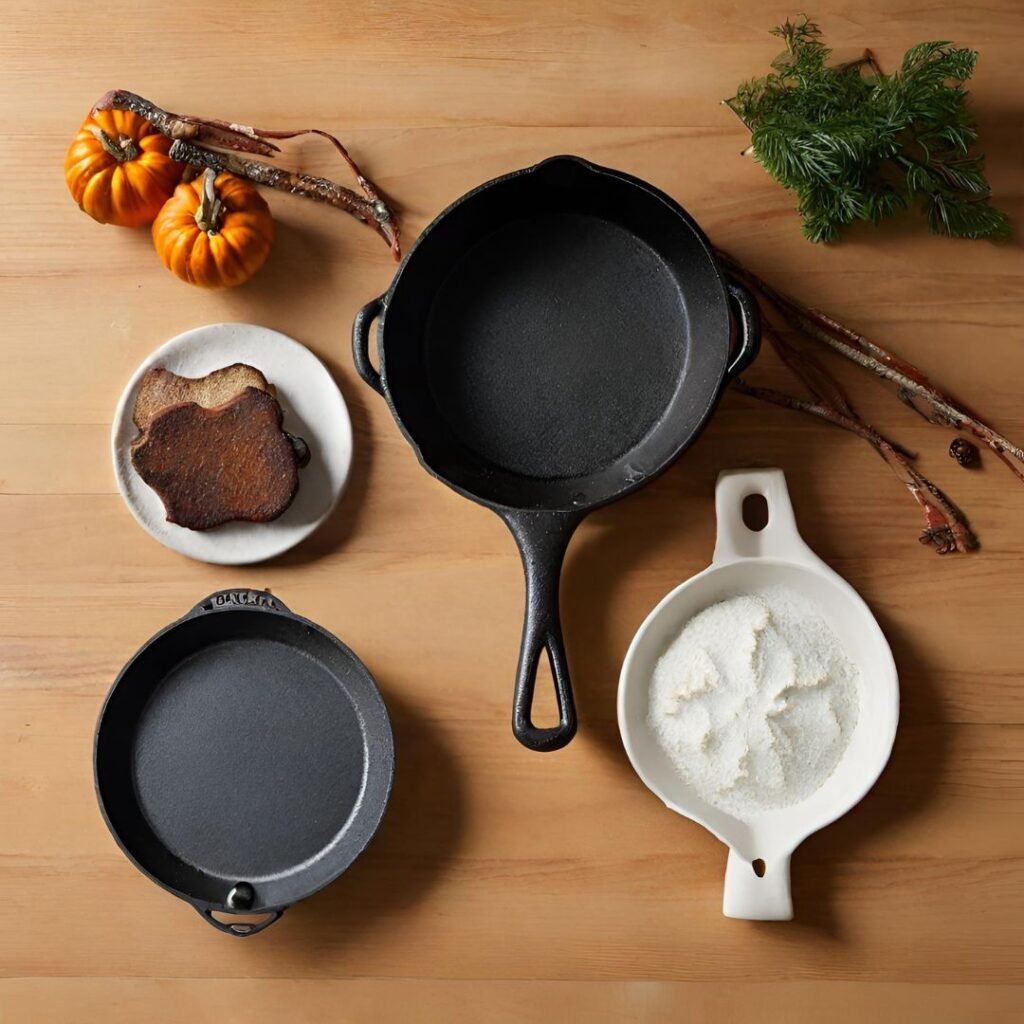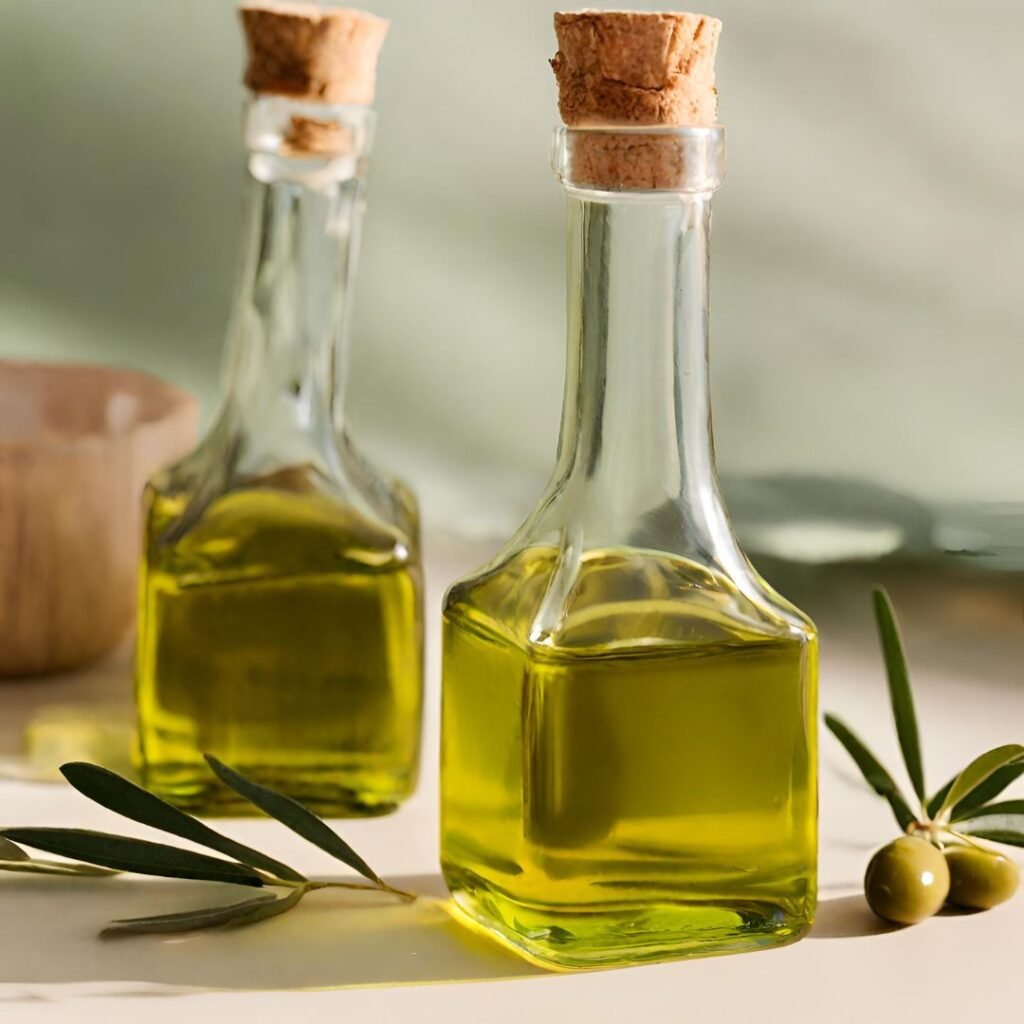Table of Contents
I. Introduction
In the realm of culinary tools, cast iron cookware stands out for its exceptional durability, heat retention, and natural non-stick properties. However, to fully unlock its potential, cast iron requires a process known as seasoning, which creates a protective layer that enhances its performance and prevents rust. Among the various oils commonly used for seasoning, olive oil has sparked debate due to its unique characteristics and potential drawbacks.
II. What is Cast Iron Seasoning?

Seasoning is an essential step in cast iron cookware maintenance. It involves applying a thin layer of oil to the cast iron surface and then baking it in a high-temperature oven. This process creates a polymerized layer of oil that adheres to the cast iron, forming a protective barrier against rust and promoting a non-stick surface.
Learn also :
IS IT HEALTHY TO COOK ON CAST IRON?
III. The Traditional Method of Seasoning Cast Iron
The traditional method of seasoning cast iron typically involves using vegetable shortening, canola oil, or animal fat. These oils have high smoke points, making them suitable for the high temperatures required during the seasoning process.
Step-by-Step Guide:
- Wash and dry the cast iron thoroughly.
- Apply a thin layer of oil to all surfaces of the cast iron, including the interior, exterior, and handle.
- Preheat the oven to 350-400°F (175-200°C).
- Place the cast iron upside down on a baking rack in the preheated oven.
- Bake for one hour.
- Turn off the oven and let the cast iron cool completely inside.
- Repeat steps 2 to 6 two to three more times to build up a strong seasoning layer.
IV. The Use of Olive Oil for Seasoning Cast Iron

Olive oil, with its rich flavor and versatility, has gained popularity as an alternative seasoning oil for cast iron. While it offers some advantages, it also has potential drawbacks that should be considered.
Benefits:
- Readily available and affordable
- Enhances the flavor of seasoned cast iron
- Possesses a relatively high smoke point
Drawbacks:
- May contain impurities that can affect the seasoning process
- Lower smoke point compared to traditional seasoning oils
- May impart a slightly sticky residue if not properly seasoned
Step-by-Step Guide:
- Choose high-quality, extra virgin olive oil.
- Follow the same steps as the traditional method, but use olive oil instead of vegetable shortening or animal fat.
- Be mindful of the smoke point and adjust oven temperature accordingly.
- Apply multiple layers of seasoning to ensure a durable non-stick surface.
V. Debunking Myths and Misconceptions
Several myths and misconceptions surround the use of olive oil for seasoning cast iron.
Myth: Olive oil will turn rancid or smoke at high temperatures.
Fact: While olive oil does have a lower smoke point than some traditional seasoning oils, high-quality extra virgin olive oil can withstand the temperatures required for seasoning.
Myth: Olive oil will create a sticky or gummy residue.
Fact: If properly seasoned, olive oil should not leave a sticky residue. However, if the seasoning is not applied correctly or if the cast iron is not heated to a high enough temperature, a sticky residue may form.
Myth: Any type of olive oil can be used for seasoning.
Fact: It is important to use high-quality, extra virgin olive oil for seasoning. Refined olive oil or olive oil blends may not perform as well or may produce undesirable results.
VI. Comparing Different Oils for Seasoning Cast Iron
Several oils are commonly used for seasoning cast iron, each with its own characteristics and suitability.
- Vegetable Shortening: High smoke point, readily available, neutral flavor
- Canola Oil: High smoke point, neutral flavor, affordable
- Flaxseed Oil: High smoke point, natural non-stick properties, may impart a slightly nutty flavor
- Olive Oil: Relatively high smoke point, readily available, may impart a slightly nutty flavor
Recommendation:
While vegetable shortening and canola oil are traditional choices for seasoning cast iron, flaxseed oil and high-quality extra virgin olive oil offer viable alternatives. The choice ultimately depends on personal preferences and availability.
VII. FAQs about Seasoning Cast Iron with Olive Oil
Can I use extra virgin olive oil for seasoning cast iron?
Yes, high-quality extra virgin olive oil is suitable for seasoning cast iron. It offers a relatively high smoke point and enhances the flavor of the seasoned cookware.
How often should I re-season my cast iron cookware?
The frequency of re-seasoning depends on how often you use your cast iron cookware. With regular use, you may only need to re-season once or twice a year. However, if you use your cast iron less frequently or if you notice that the seasoning is starting to wear off, you may need to re-season more often.
Can I use other types of oils, such as coconut oil or avocado oil, for seasoning?
While coconut oil and avocado oil have high smoke points and can be used for seasoning cast iron, they are not as traditional choices as vegetable shortening, canola oil, flaxseed oil, or olive oil. Some users report that coconut oil and avocado oil can leave a slightly sticky residue, so it may take some experimentation to find the right method for using these oils.
Can I use olive oil to season enameled cast iron cookware?
No, you should not use olive oil to season enameled cast iron cookware. Enameled cast iron already has a protective coating, so seasoning is not necessary. In fact, using olive oil to season enameled cast iron could damage the coating.
Can I use olive oil to season cast iron griddles or grill pans?
Yes, you can use olive oil to season cast iron griddles or grill pans. The same process applies as for seasoning skillets or Dutch ovens. Just be sure to choose high-quality extra virgin olive oil and apply multiple layers of seasoning to ensure a durable non-stick surface.
Conclusion
Olive oil, with its availability, versatility, and relatively high smoke point, offers a viable alternative to traditional seasoning oils for cast iron cookware. While it may require some additional attention and care during the seasoning process, properly seasoned cast iron with olive oil can provide years of culinary enjoyment. Embrace the unique properties of olive oil and discover the joys of cooking with cast iron, a timeless kitchen companion that enhances the flavors of your culinary creations.
